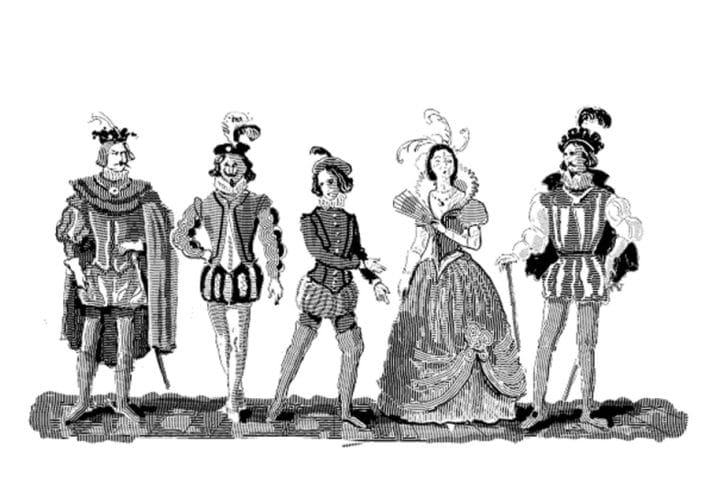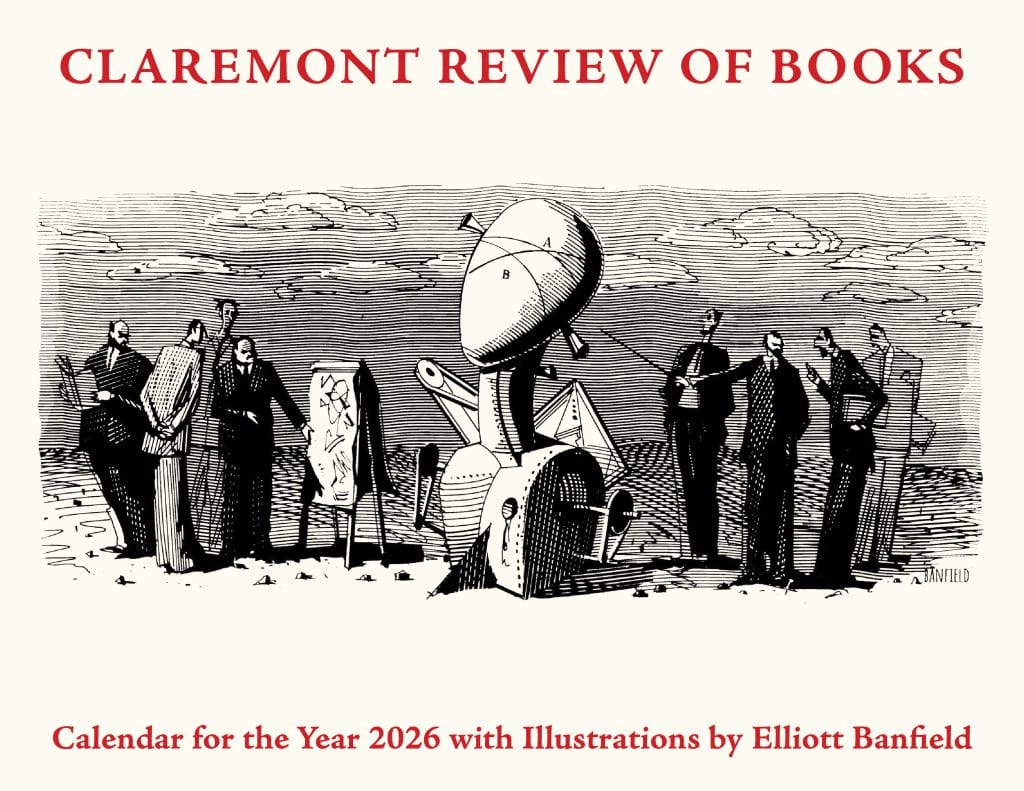Books Reviewed
A review of The Fortunes of Permanence: Culture and Anarchy in an Age of Amnesia , by Roger Kimball
, by Roger Kimball
If it weren't otherwise already apparent, the publication of The Fortunes of Permanence confirms Roger Kimball's status as America's foremost cultural critic. In truth, "cultural critic," as that term is commonly employed, hardly does justice to the breadth and depth of an essayist whose keen observations range comfortably and gracefully across politics, history, religion, philosophy, education, literature, and art. A frequent contributor to leading newspapers and journals of opinion, editor and publisher of the New Criterion, publisher of Encounter Books, author of seven books and editor of a baker's dozen more, Kimball is as brilliant as he is prolific. No mere cultural observer, he has become a cultural force in his own right, as ardent a defender of the good, the true, and the beautiful as you will find these days, and a sure-footed guide to the greatness of Western civilization no less than its present discontents.
Kimball first came to national attention in 1990 with the publication of Tenured Radicals, which chronicled in clinical detail the politicization of the modern university and the gradual evisceration of liberal education. He focused on the operational mechanics by which diverse species of radicals-with-agenda worked their way into and eventually came to dominate the major citadels of higher learning. He fleshed out the back story a decade later in The Long March (2000), which traced the intellectual roots of contemporary academic corruption to the cultural revolution of the ‘60s. "The Age of Aquarius," Kimball wrote,
did not end when the last electric guitar was unplugged at Woodstock. It lives on in our values and habits, in our tastes, pleasures, and aspirations. It lives on especially in our educational and cultural institutions, and in the degraded pop culture that permeates our lives like a corrosive fog.
Taken together, Tenured Radicals and The Long March constitute the best single introduction to the degradation of the humanities and how it came about.
Two subsequent books, Experiments Against Reality (2000) and Lives of the Mind (2002), carried the themes identified in his earlier work more broadly into Western intellectual history, by examining the philosophical roots of modernity and its descent into relativism and nihilism. In 2003, Kimball published Art's Prospect: The Challenge of Tradition in an Age of Celebrity, a learned and elegant demonstration of his talent as an art critic (and as a critic of art critics). These same talents were on abundant display in The Rape of the Masters: How Political Correctness Sabotages Art (2004), whose title tells all. Whether one is broadly interested in shoring up the tenets of the Western intellectual tradition, or more narrowly, in the meaning and matter of artistic expression, Kimball has something interesting to say—and say it he does, with penetrating insight, pungency, wit, and rhetorical grace.
* * *
The Fortunes of Permanence deepens the criticism of many of the targets of his earlier work, particularly the decadence of much modern intellectual discourse and its corrosive effects on more or less everything that Western civilization once held dear. The central lesson of this latest collection, as his late friend William F. Buckley, Jr., might say, is the duty of civilized men to stand athwart relativism yelling Stop! Roughly half of the 21 essays are devoted to a pathological dissection of contemporary thought and practice; the remainder deal with what Kimball calls "pockets of resistance," as exhibited in the lives and thought of writers (some of them now little known or half-forgotten) who looked decadence straight in the eye and, in so many words, said "Not with my civilization you don't!" Among those Kimball presents as models for emulation (warts and all) are Friedrich Hayek, Rudyard Kipling, G.K. Chesterton, James Burnham, Malcolm Muggeridge, John Buchan, and Leszek Kolakowski. On Kimball's showing, the common thread uniting these otherwise disparate thinkers is not only their sophisticated understanding of the difference between civilization and barbarism, but, no less, their moral courage in confronting the intellectual idols of their day.
The importance of courage is also a subject of Kimball's broader-themed essays on the poisonous effects of relativism. Noteworthy in this regard is "Pericles and the Foreseeable Future: 9/11 a Decade Later," which contrasts the robust defense of democracy and equality set forth in the Funeral Oration with the garment-rending, we-had-it-coming stance of prominent American intellectuals after the Twin Towers fell. Readers will also be instructed and charmed by Kimball's review of The Dangerous Book for Boys, which reminds us of Aristotle's admonition that courage is the most important virtue because it is essential to the practice of all the others.
On the pathology of relativism generally, Kimball's takedown of Martha Nussbaum in "Does Shame Have a Future?" is a masterpiece of intellectual vivisection, as is his "Institutionalizing Our Demise: America vs. Multiculturalism." Three other essays—"Friends of Humanity," "The Death of Socialism," and "What's Wrong with Benevolence"—unmask the fatal conceit that lies at the heart of modern utopianism and why it invariably leads to tyranny: the belief that all will be well if we simply altered human nature and empowered government to effect the change.
* * *
Writ large, the essays gathered in The Fortunes of Permanence remind us that the Enlightenment Project—or at least its more radical emanations—may have run its course. The belief that mankind would flourish if only it could be released from the bondage of any source of authority other than human will has at last descended into nihilism and the specter of tyranny. Or perhaps it would be more precise to say that the difficulties identified by Kimball arise more from philistines in our midst than from barbarians, which is to say, more from those who ought to know better than from those who are simply ignorant. Our problem, in short, is not merely that refined intellectual and moral discrimination of the sort rightly celebrated by Kimball has been displaced by a thoroughly decadent vulgarity; the problem, rather, is that those whose duty it is—or so one would have thought—to transmit the permanent truths that lie at the heart of the West have decided that Western civilization itself is corrupt.
This problem is not new. Edmund Burke, I think, identified it better than almost anyone in his day and offered love of tradition as the remedy. Burke's appeal from the old world to the new failed, as we know, and that was before Darwin, Marx, and Nietzsche wormed their way into the Western intellectual tradition. How much more difficult it now is, then, to raise the tattered banner of tradition as a worthy alternative to the decadence that surrounds us! Roger Kimball is aware of this exquisite dilemma, although he has no occasion in these pages to take it head on. He does note that artistic standards must be "grounded in a measure beyond art," and on page after page he directs our attention toward exemplars of what that measure might look like. In future outings, it would be instructive if Kimball were to turn his refined intellect and elegant hand to a fuller elaboration of what that "measure beyond art" should entail. In the meantime, we should be grateful that we have among our number an essayist of such surpassing excellence.






